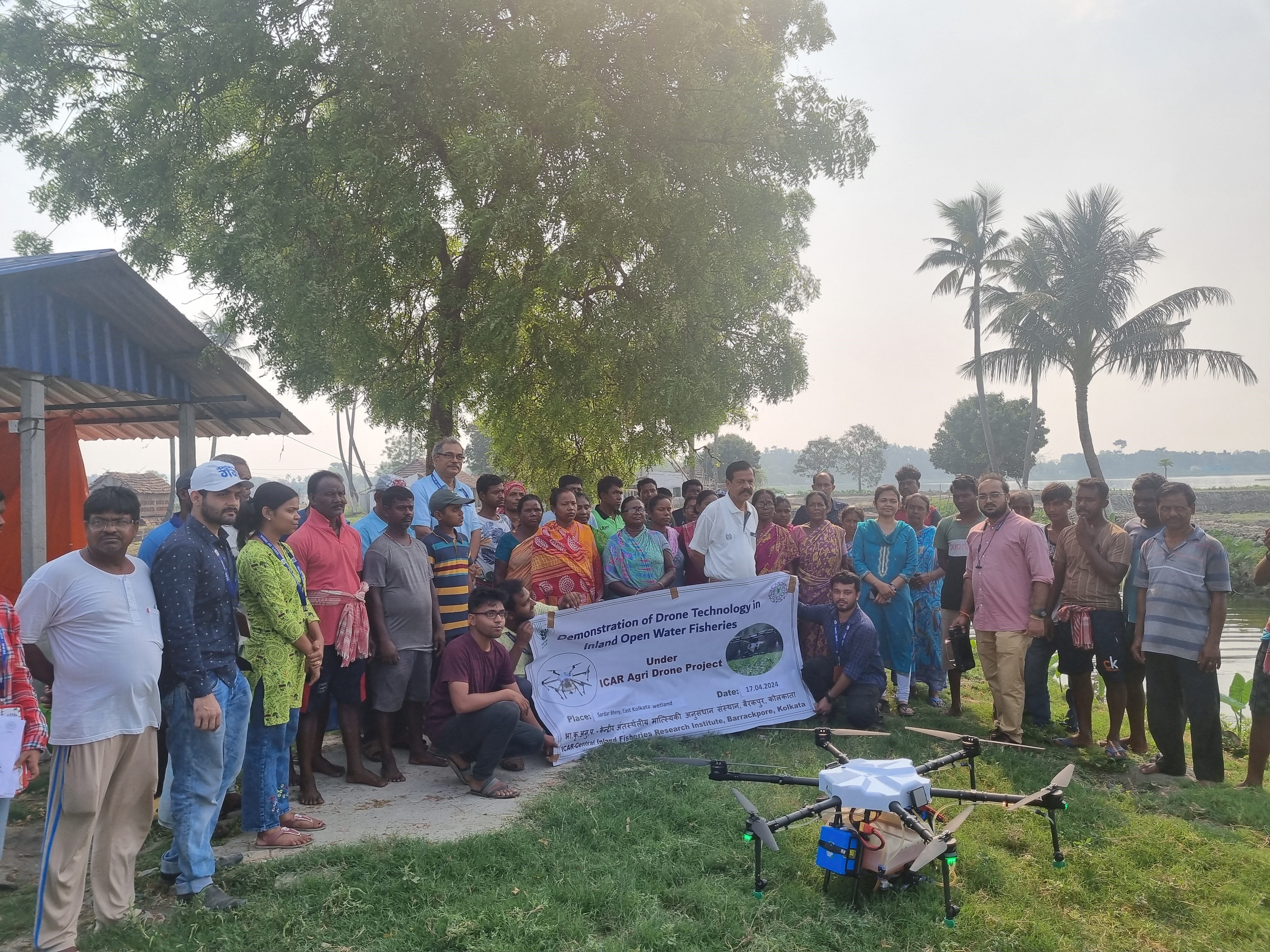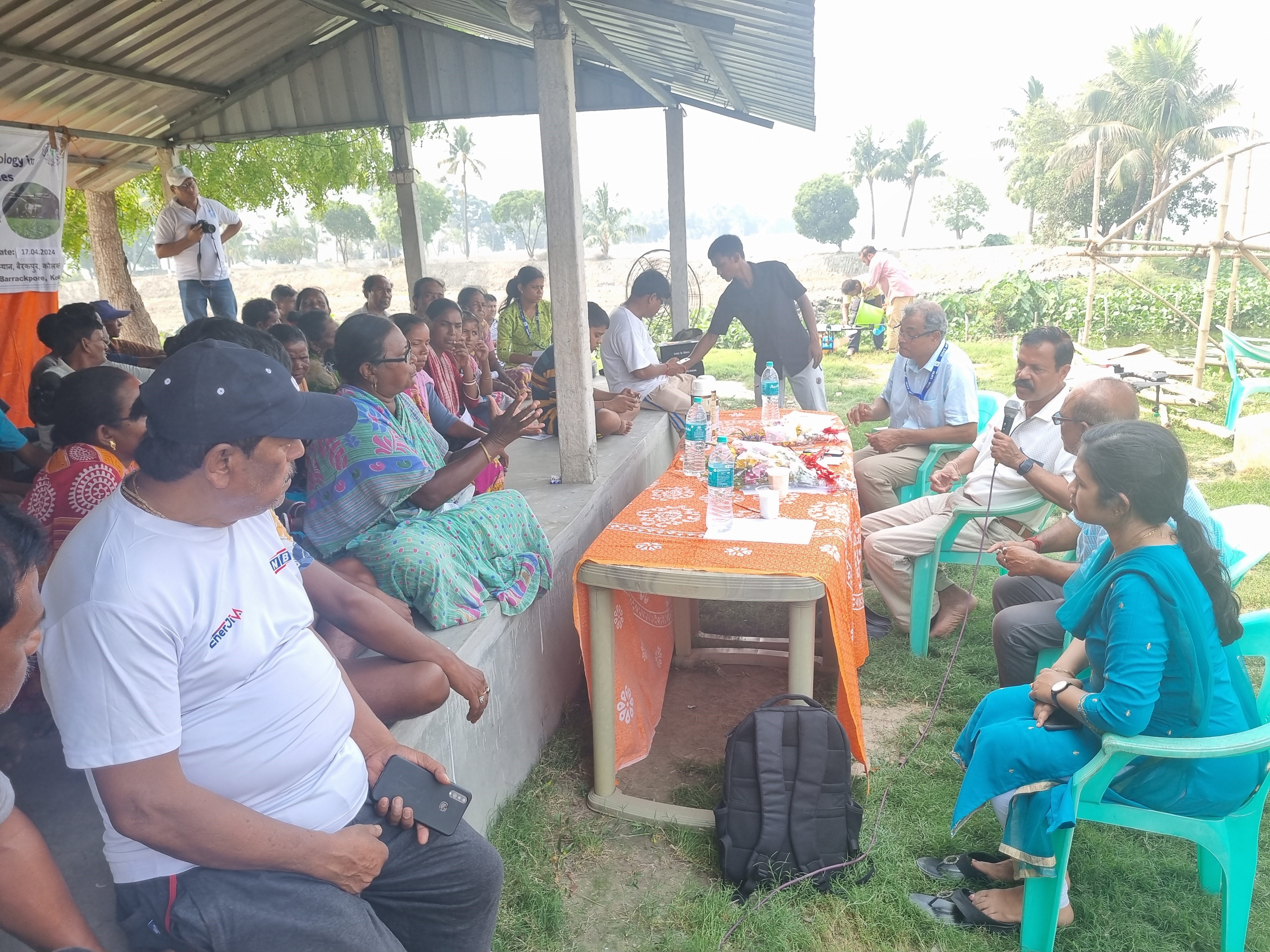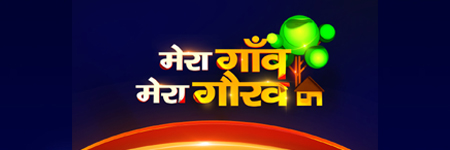Overview
Publications
Recruitment
Intranet
CIFRI Corners'
ICAR-Central Inland Fisheries Research Institute has organized an awareness program on fisheries and ecosystem management under the East Kolkata Wetland project funded by the Department of Environment, Govt. of West Bengal. The program was conducted at 4 No Bheri and Sardar Bheri, Kolkata, West Bengal on the 16th and 17th of April 2024, respectively.
 At 4 No Bheri, a total of 32 farmers including 14 women and 18 men participated in the programme, while at Sardar Bheri 48 farmers including 18 women and 30 men participated in the programme. The program was led by Dr. B.K. Das, Director, ICAR-CIFRI addressed the gathering and enlightened the fishers on several areas such as sustainable fish farming, disease and health management of fish, application of drone-based technology for spraying liquid medicine to reduce time and manpower and management of exotic fish, especially crocodile fish in East Kolkata Wetlands. He emphasized on use of different management measures including restriction of the entry of crocodile fish through the inlet canal into the culture system, screening of fish seeds to avoid entry of crocodile fish seeds into the culture system and the possible use of crocodile fish as a source of protein in animal and fish feed. Later, Dr. S. Samanta, HoD, FRAI Division, ICAR-CIFRI addressed the gathering and motivated the farmers on ecosystem management of the wetland area and better management practices in the fish production system.
At 4 No Bheri, a total of 32 farmers including 14 women and 18 men participated in the programme, while at Sardar Bheri 48 farmers including 18 women and 30 men participated in the programme. The program was led by Dr. B.K. Das, Director, ICAR-CIFRI addressed the gathering and enlightened the fishers on several areas such as sustainable fish farming, disease and health management of fish, application of drone-based technology for spraying liquid medicine to reduce time and manpower and management of exotic fish, especially crocodile fish in East Kolkata Wetlands. He emphasized on use of different management measures including restriction of the entry of crocodile fish through the inlet canal into the culture system, screening of fish seeds to avoid entry of crocodile fish seeds into the culture system and the possible use of crocodile fish as a source of protein in animal and fish feed. Later, Dr. S. Samanta, HoD, FRAI Division, ICAR-CIFRI addressed the gathering and motivated the farmers on ecosystem management of the wetland area and better management practices in the fish production system. 











